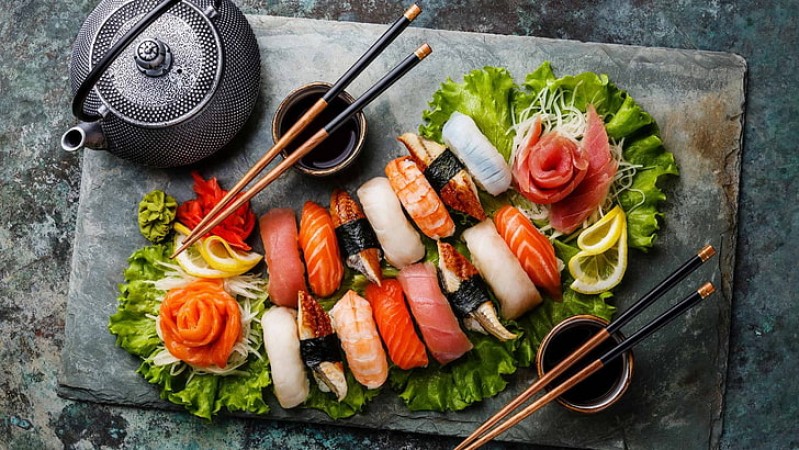
When it comes to longevity and vibrant health, the Japanese have long been admired for their exceptional lifestyle choices and dietary habits. Their diet, deeply rooted in tradition and cultural practices, is a key factor contributing to their extended lifespans and well-being. In this article, we'll explore seven Japanese dietary secrets that can pave the way to a longer, healthier life.
At the heart of the Japanese diet lies a commitment to consuming nutrient-rich, whole foods. Staples like rice and vegetables take center stage. Japanese meals often feature a bowl of rice paired with an array of fresh, seasonal vegetables. This combination ensures a balance of essential carbohydrates, vitamins, and minerals, promoting overall health.
The abundant consumption of fish is a cornerstone of the Japanese diet. Fish, especially fatty varieties like salmon, mackerel, and sardines, are loaded with omega-3 fatty acids. These healthy fats are known to support heart health, reduce inflammation, and enhance cognitive function.
Japanese culture places great importance on mindfulness, and this extends to eating habits. Meals are served in small portions, emphasizing quality over quantity. This practice encourages a slower pace of eating, allowing the body to recognize satiety cues and prevent overeating.
Fermented foods have a special place in Japanese cuisine. Miso, a paste made from fermented soybeans, is a probiotic powerhouse that promotes gut health. Soy sauce, another staple, contains beneficial enzymes. The consumption of these fermented delights aids digestion and nutrient absorption.
Green tea, an integral part of Japanese culture, is celebrated for its numerous health benefits. Packed with antioxidants, green tea supports metabolism, brain function, and immune system strength. The ritual of preparing and savoring tea also provides a calming break in the day.
Tofu, derived from soybeans, is a versatile source of plant-based protein in the Japanese diet. Low in calories and rich in nutrients, tofu contributes to muscle health, helps maintain a healthy weight, and offers a canvas for various flavors in dishes.
Japanese meals are a feast for the eyes as much as the palate. Vibrant, colorful dishes are created by incorporating a variety of vegetables, seaweed, and other ingredients. This diversity ensures a broad spectrum of vitamins, minerals, and antioxidants, supporting optimal health.
Incorporating these seven dietary secrets into your lifestyle can bring you closer to experiencing the longevity and vitality that the Japanese people are known for. Remember, it's not just about the food itself, but the mindful, balanced approach to eating that truly makes a difference.
Remember, making gradual changes and finding what works for your individual preferences and needs is key to adopting any new dietary habits. So why not borrow a leaf from the Japanese playbook and embark on a journey towards a longer, healthier life?
What your skin tags, moles, and freckles reveal about your health?
What is the secret to glowing skin revealed by The 60-Second Rule? Understand Every Beauty Trend
5 Essential Suggestions to Help You During a Panic Attack, Including Deep Breathing